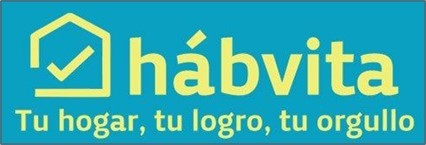



Keep this story going! Share below!
Habvita has an innovative business model and product design that allows its economic and sustainable purposes. They built houses that adapt to communities and are built within the community with a building execution of 5 months or less.
“Our houses are very adaptable, for example, when the community weather is extremely hot we built the kitchen outside”.
Their business Model is based in “7 Steps”, that allows housing for the people that can´t afford their own house. Therefore, they work mainly within the formal and informal economy, at the bottom of the pyramid and they work with strategic alliances in order to provide financial solutions.
Part of the objective is that the owner really feels that they have a house, they don´t want anything just as a gift, they want to be part of the process, building and paying for their home.

Some years ago, the two brothers Alfonso and Santiago Serrano Gómez participated in Pro-Mazahua, a foundation that helped the members of this indigenous community to improve their living conditions by obtaining a home.
However, they realized that if they continued on the path of philanthropy, their achievements would be limited, because “by far one reached 100 homes per year”.
So Starting in 2010, they decided to start a project that was profitable and that would help serve a population traditionally not supported by private initiative.
Now a days Habvita is still successfully operating and have developed more than 6,047 homes nation wide.
During the last 10 years Habvita has evolved and transformed its business, allowing its business growth and potential expansion.
The business has an impact generating hundreds of indirect jobs for each development project. It had 130 Million MXN revenue in 2017, winning in 2013 the “Premio Nacional de Vivienda". Also they have built more than 6,200 houses and helped after Hurricane Ingrid & Manuel Habvita participated in 55 reconstructions.
As well they have developed sustainable housing so that families do not require the abuse of natural resources that surround their homes. For example: Families that obtain this kind of housing stop using natural rivers to use water for living and instead use water tanks and plumbing. This is possible due to their efficient construction with prefabricated materials that are manufactured in a less harmful process for the environment.
The business model allows them to work through economies of scale – allowing its expansion and a reduction in costs, making the business profitable.
One of its aggregated value is that they build the house at their costumers' land allowing the community to continue with its social context and traditions, with dignified living conditions.
Communities are motivated to create jobs and develop the local economy instead of going to the big cities. For example: The local economy grows as the jobs created keep increasing and young people are motivated to stay in the community instead of migrate to big cities.
In addition, homes are built in order to avoid heat and cooling energy systems, adapting to the local weather conditions.
Get stories of positive business innovations from around the world delivered right to your inbox.

Habvita, a Mexican company that works and helps building houses focused on the bottom of the pyramid through a seven-step process, which includes landing, financial solution, construction and payment tracking.
The seven-step process steps are:
1) Make contact
2) Select model and documentation required
3) Clean the land and prepare it
4) Financial process
5) Make the first payment
6) Build the house (4 months)
7) Make the payments on time
The house owner has to meet certain requirements: win less than five minimum wages a month, have an available land, and be without a previous house allowance.
Habvita has built around 6,017 homes per year and its construction system has been used in more than 80,000 homes.
They have presence in nine states: Sonora, Jalisco, San Luis Potosi, Mexico State, State of Mexico, Puebla, Oaxaca, Chiapas, Tabasco and Campeche.